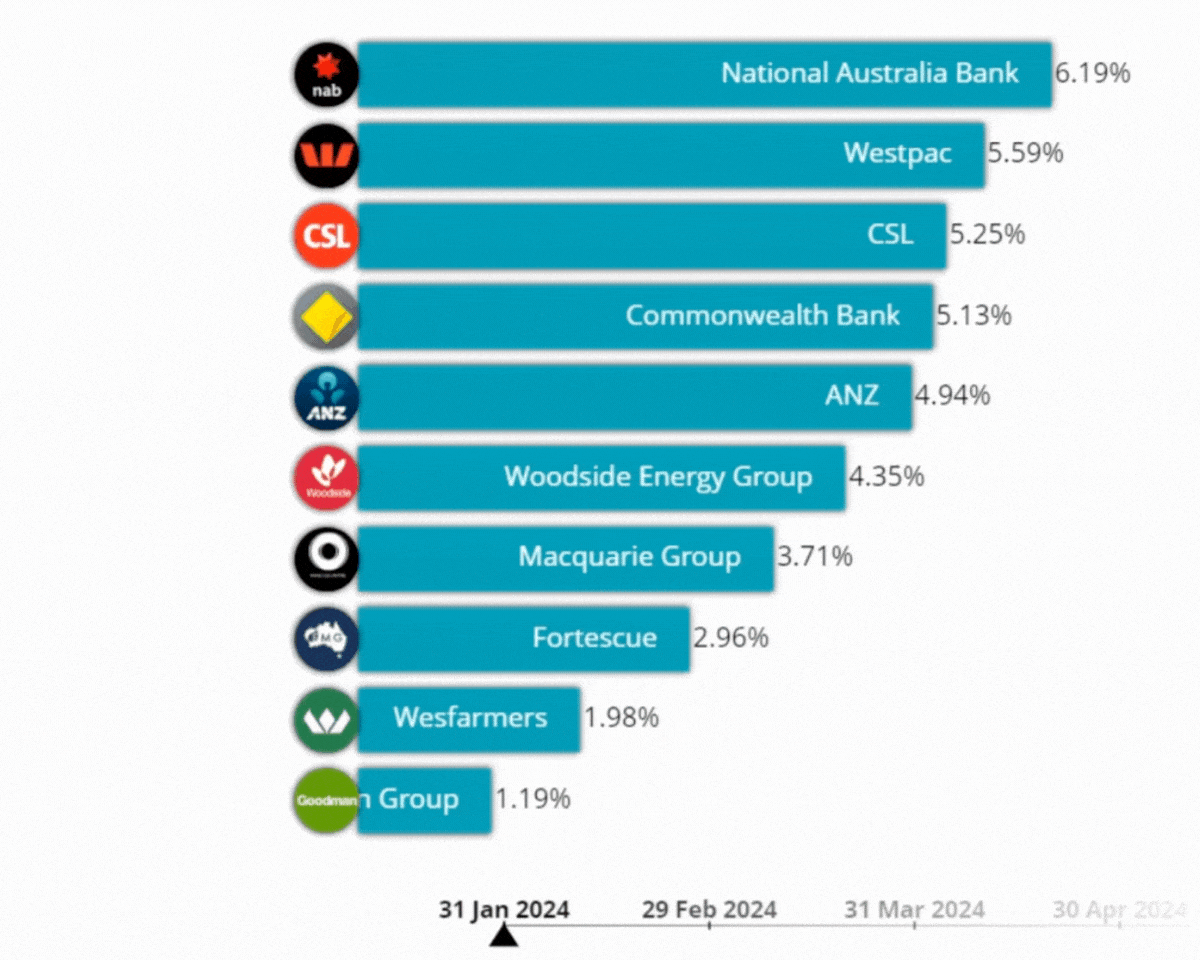Who loves Australian banks?
Australian banks have been among the star performers on ASX over the past 12 months, despite warnings about high valuations. It is naïve to blame their rise on passive funds, let’s bust that myth (again).
As Australia’s biggest bank, CBA’s (ASX: CBA) share price hit its historic highs earlier this year. Its surge early in the year led the Australian Financial Review to opine that on “every reliable measure of valuation, CBA is literally off the charts”.
After CBA announced its 2023 results, the Australian Financial Review’s Chanticleer highlighted the opinions of equity markets analysts:
- Barrenjoey: “Extremely stretched on every possible measure” and
- Citi: “One of the most expensive banks in the world”
Since then, the share price of CBA has continued climbing even though no analysts have recommended CBA this year. A review of the Australian sell-side analysts in Bloomberg reveals that CBA has a ‘sell’ recommendation from 14 of 16 analysts, with two analysts advising to ‘hold’.
Chart 1: Commonwealth consensus rating
CBA is the most expensive bank in the world, you can see in the chart below, which charts the valuations of global banks based on their price to book and their forward prices to earnings (P/E). The cheapest banks are at the bottom left of the chart and they get more expensive to the top and to the right.
Chart 2: Global bank valuations
Judging by the chart above, CBA is not alone. The other three of the big four also enjoy lofty valuations.
The rise in the share price of big banks has caught many professional investors off guard. As a result, many of these professional investors have underperformed the market, leading many of them to wonder what is behind the demand for Australian bank shares.
Predictably, some have suggested it is because of the rise of passive funds, implying that Australian banks’ share prices are rising because of the increasing amounts being allocated to passive types of investments, like ETFs.
Let’s break that down.
In effect, this is the “distorting the market” myth we busted here, and Eric Balchunas busted in his book, The Bogle Effect, but just to recap: The concern is that passive funds, like ETFs, by just tracking an index, mindlessly drive up prices by buying stocks regardless of fundamentals and as a result companies are not being correctly priced.
Let’s ignore the fact that there have been plenty of examples of mispricings, and plenty of booms and busts since well before passive funds, there are also daily examples of a company’s price rising and falling quickly after good or bad announcements or news.
So, ignoring that, if index funds were mindlessly driving up prices, wouldn’t all the stocks in the index be trending in the same direction? You need only look at the movement of the top 10 stock prices in the ASX since the beginning of the year to see that they are far from uniform.
.gif)
Play the above video and you will see the returns of the top 10 do not move uniformly. Property trust, Goodman Group has far outperformed the other companies in the S&P/ASX Top 10. The banks don’t move uniformly, with Westpac outperforming the other four. Woodside dropped out of the Top 10. This is not the work of passive investors.
BHP started the year as the largest company on ASX. At the same time, flows into ETFs were increasing, so in theory, that should have been driving the price of BHP, but it has barely scraped a positive return for the nine months to 30 September 2024.
The reality is many market participants are impacting the price movements of shares. In The Bogle Effect, Eric Balchunas wrote, “A good way to think about it is that index funds and ETFs are in the backseat of the car that active players are driving… Case in point: Apple and Microsoft are currently at the top of the S&P500 Index, not because passive funds are popular but because their market cap is the biggest. And the reason their market cap increased is that their price increased. The reason their price increased is that active traders liked the stocks and bought them. And at some point down the road they will stop wowing active players who will sell them and then they will stop being the top two companies. The index is a dynamic, constantly changing organism thanks to active management.”
Since Balchunas wrote his book in 2022, Nvidia has stormed into the top 10, knocking on the door of the top two, why? It’s for the same reason, he says Apple and Microsoft are the biggest companies. And hint: It’s not the rise of passive.
Much of the hysteria about ETFs and passive funds distorting markets, mindlessly driving up prices or creating bubbles is exactly that, hysteria.
Learn more about the origin of ETFs and best practice ETF execution.
5 topics
1 stock mentioned

